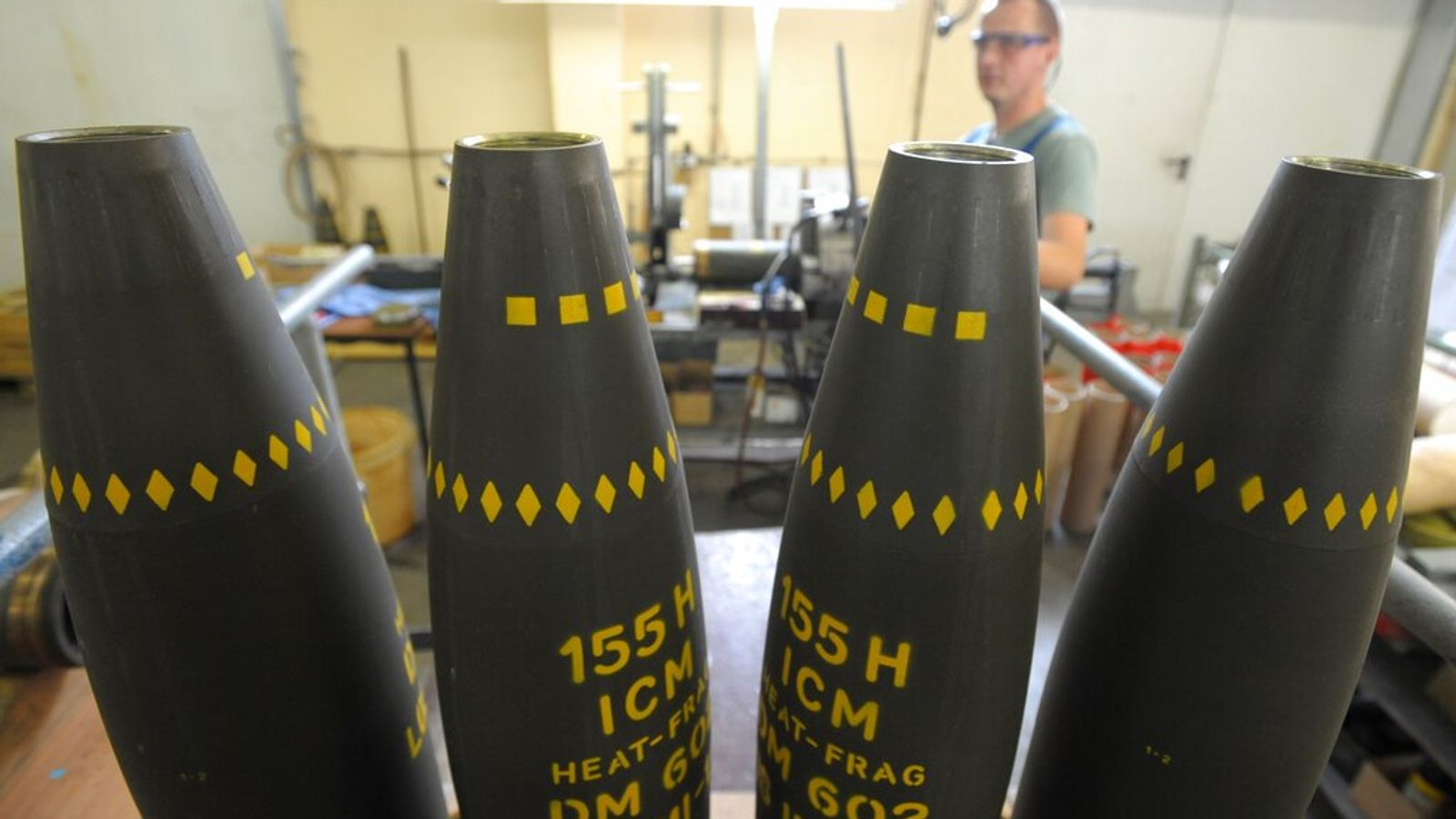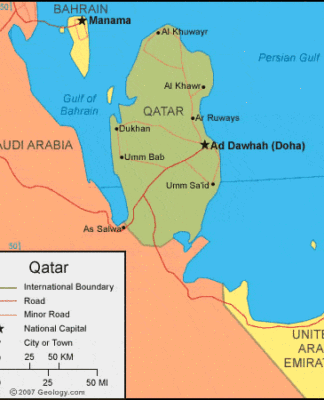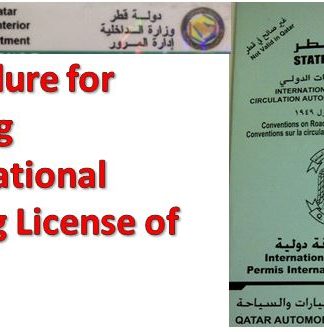President Biden agrees to send controversial cluster munitions to Ukraine
It’s hoped the weapon will boost Ukraine’s lagging counteroffensive but the UN says they should never be used – and more than 100 countries have banned them.
Friday 7 July 2023 22:53, UK
Listen to this article
0:00 / 6:07
1X
BeyondWords
Audio created using AI assistance
Smoke rises after civil defence members safely detonate cluster bombs inside a field in al-Tmanah town in southern Idlib countryside3:49
Play Video – What are cluster bombs?
What are cluster bombs and why are they so controversial?
Why you can trust Sky News
US President Joe Biden has agreed to give Ukraine controversial cluster munitions to use against Russian troops.
The weapon detonates in the air and releases “bomblets” that scatter over a large area.
Opponents say they kill indiscriminately and that some of the smaller munitions can fail to detonate, posing a long-term risk to civilians.
Ukraine war latest: Deadly blast at Russian explosives factory
US officials said the cluster bombs it will provide have a low “dud rate” of under 2.35% to minimise the risk.
Mr Biden called it a “difficult decision” but said he had to act as “the Ukrainians are running out of ammunition”.
He told CNN the cluster bombs were being sent as a “transition period” until it can supply more standard 155mm artillery.
MORE ON UKRAINE
File pic
Rishi Sunak ‘discourages’ use of cluster bombs after Biden agrees to send controversial munitions Ukraine
A patient in a makeshift ambulance from the field hospital
Ukraine’s front line medics reveal the toll of gruelling counteroffensive
Activists and international delegations stand next to cluster bomb units, during a visit to a Lebanese military base
US cluster bombs deal is clear signal that war is not going well for Ukraine
Related Topics:
Ukraine
Colin Kahl, under-secretary of defence for policy, said “hundreds of thousands” were available but refused to state how many would initially be provided.
He said Russia had been using older cluster munitions with a dud rate of 30-40% since the start of the war.
A Ukrainian serviceman with a defused cluster bomb from a Russian missile
Image:
A Ukrainian serviceman with a defused cluster bomb from a Russian missile
Ukraine is said to have given written assurances not to use them in populated areas, to map where they are used, and committed to a post-war clean-up.
The US put off the decision “as long as we could” due to the risk to civilians, said Jake Sullivan, Mr Biden’s national security adviser.
But he said there was “a massive risk of civilian harm” if Russia takes more territory because Ukraine doesn’t have enough artillery.
THIS IS A SIGN THE WAR ISN’T GOING WELL FOR UKRAINE
Mark Stone
Mark Stone
US correspondent
@Stone_SkyNews
The White House is fully aware of the huge controversy surrounding this cluster munitions decision.
Some 123 countries – including almost all of America’s allies – are part of the 2008 International Convention on Cluster Munitions, which bans the use or transfer of this particular weapon.
Even within US government circles, there has been deep unease about supplying its own stockpile of cluster munitions to Ukraine.
The long and grim record of the cluster bomb explains the unease and the controversy – civilians represent 97% of the casualties, according to a report last year by the Landmine and Cluster Munition Monitor.
So why supply it?
Well, the facts on the ground are not in Ukraine’s favour. The transfer is a clear signal that the war is not going well for Ukraine.
The so-called spring offensive did not materialise in the spring and looks set to falter through the summer too.
Ukraine is fast running out of more conventional artillery with supply stocks in America and elsewhere running low.
Read Mark’s full analysis here.
Ukrainian presidential adviser Mykhailo Podolyak said cluster munitions could have an “extraordinary psycho-emotional impact” on demoralised Russian troops.
More than 100 countries are signed up to a convention against the use and manufacture of cluster bombs, but the US, Russia, and Ukraine are not part of it.
“We’re not signatories to that agreement, but it took me a while to be convinced to do it,” Mr Biden told CNN.
He said he’d followed the recommendation of US defence officials.
Pic: AP
Image:
Cluster munition shells being dismantled in Germany in 2009. Pic: AP
NATO Secretary-General Jens Stoltenberg said the alliance had no position on the issue and that it was for “individual allies… to make those decisions”.
However, the United Nations has urged both sides not to use them.
Read more:
The training facility where Wagner Group fighters ‘would be welcome’
Wagner troops leave Central African Republic after ‘refusing contracts with Russia’
UN human rights office spokesperson Marta Hurtado said “the use of such munitions should stop immediately and not be used in any place”.
The International Red Cross said cluster munitions “cause significant numbers of preventable civilian casualties”.
Oleksandra Ustinova, a member of Ukraine’s parliament, is one of those supporting the weapon’s use.
She said troops already had to disable mines when they regain territory, and could catch any unexploded bomblets as part of that.
“We will have to de-mine anyway, but it’s better to have this capability,” she said.
Sky defence analyst Sean Bell said Ukraine had to make a judgement about “the benefits of these weapons, which could provide a decisive capability in this war, versus the risk of the legacy they’re going to inherit of having to clear these up”.
People clearing cluster munitions in Syria in 2017
Image:
People clearing cluster munitions in Syria in 2017
The last large-scale US use of the weapon was in Iraq in 2003.
However, Human Rights Watch estimates the American-led coalition also used 1,500 cluster bombs in the first three years of the Afghanistan war.
The cluster bombs being sent to Ukraine are part of another tranche of weaponry and ammunition that the US says brings its total arms contribution to $41.3bn (£32bn).
Related Topics
Ukraine






























